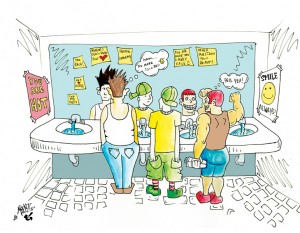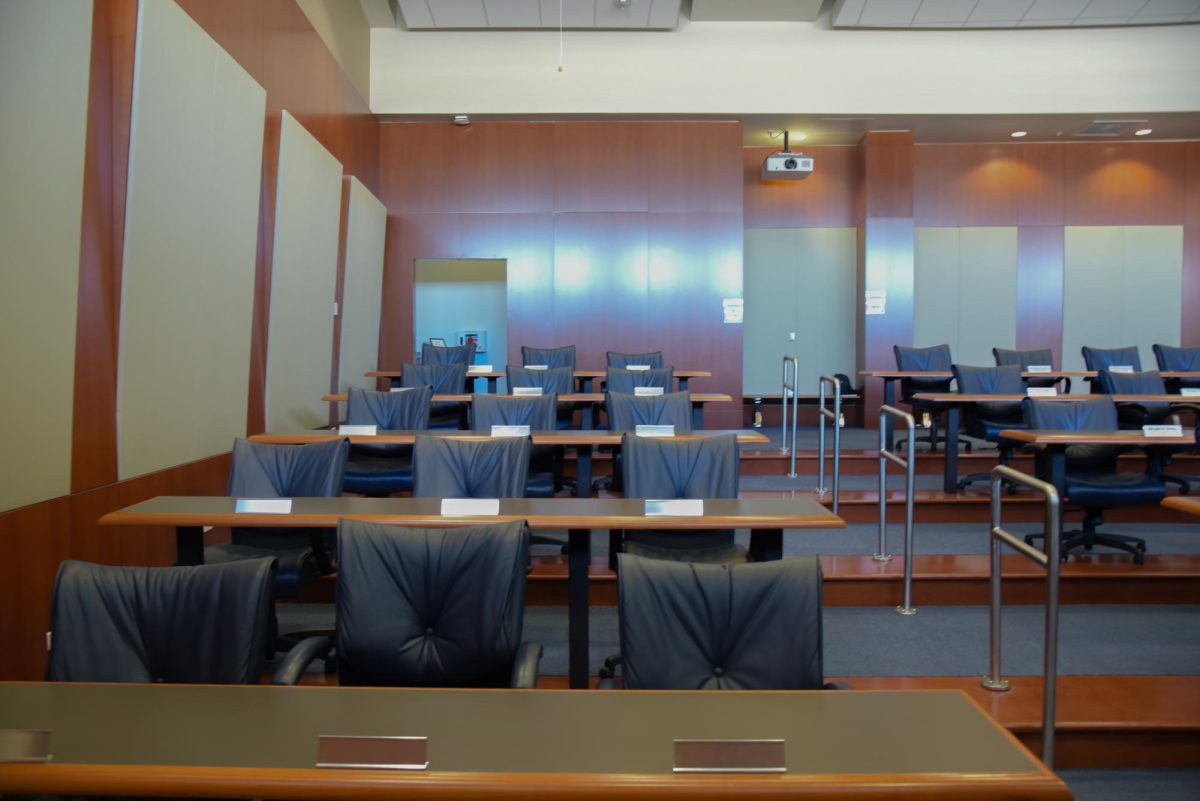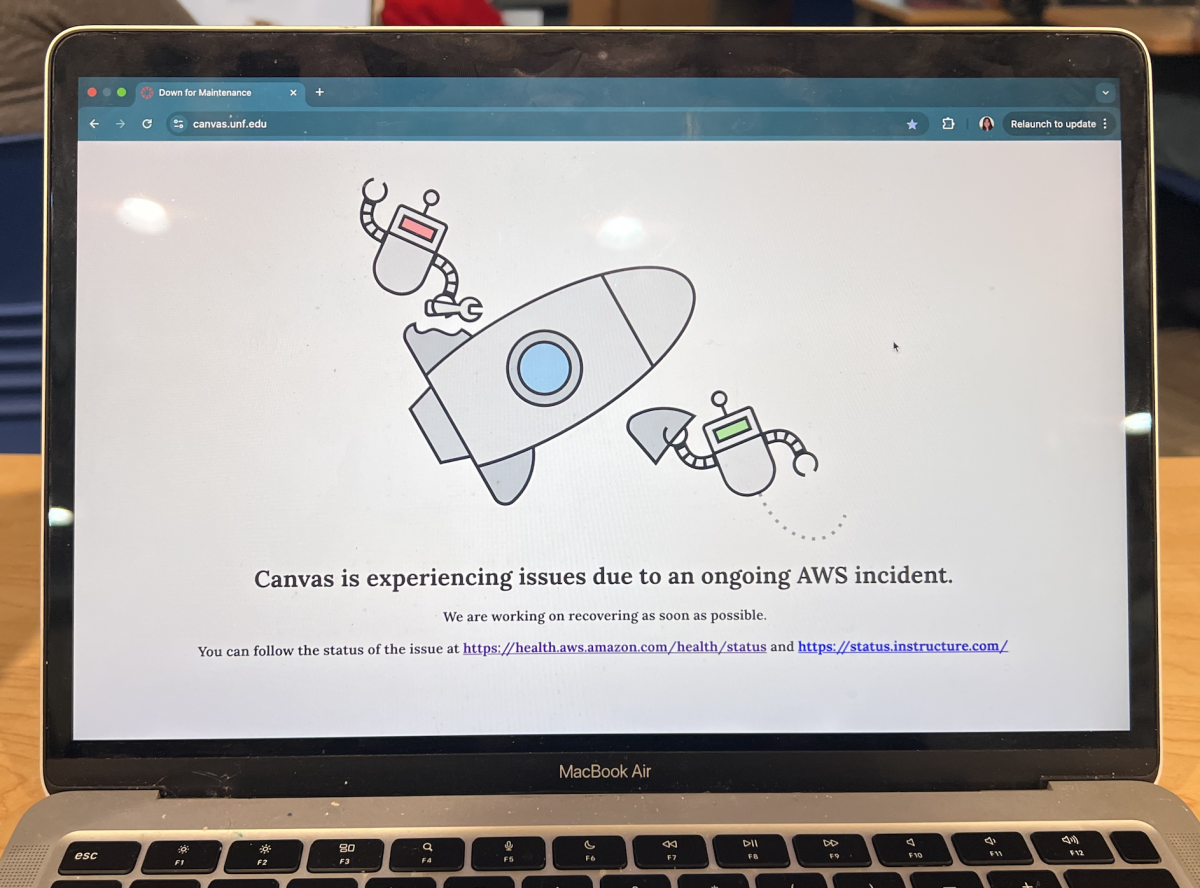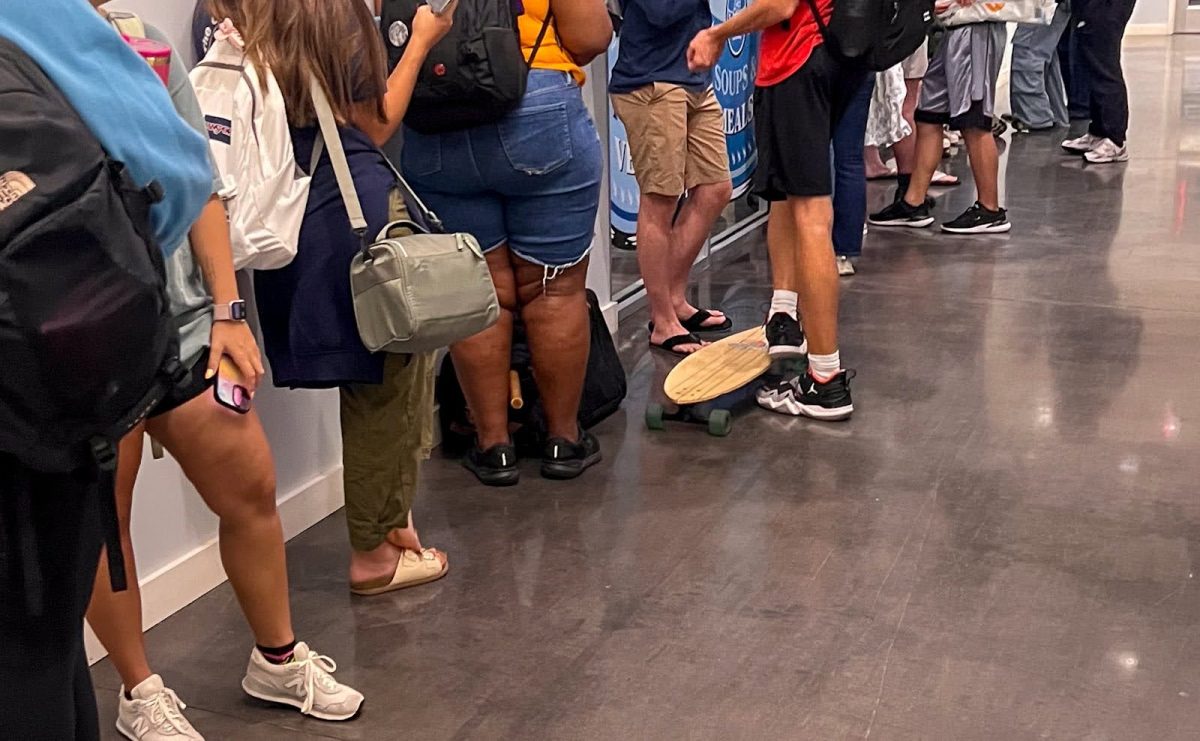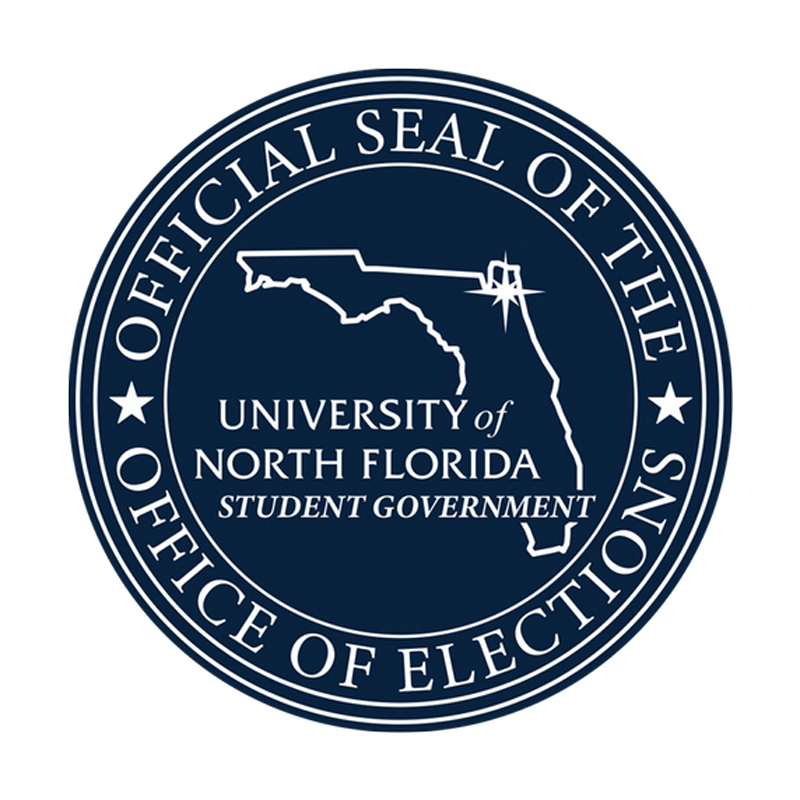It’s an age-old college tale. Two perfectly decent-looking girls are one-upping each other when it comes to the circumference of their legs.
Have you ever eavesdropped on an effeminate conversation that goes a little something like this?
“My thighs are so much bigger than yours. I so need to go on a diet.”
“No way, my thighs are totally bigger than yours. I’m the one who needs to diet.”
And here you are thinking, am I actually witnessing this? Both of these girls are beautiful — they must be insane.
Feb. 17 through Feb. 27 was National Eating Disorders Awareness Week — a collective effort of volunteers, professional, health care providers, educators, social workers and individuals invested in raising awareness of the pitfalls involving eating disorders.
March 8 through March 14 is Self-Image Week— a collective effort sponsored by the Body Image Task Force of operationbeautiful.com, whose mission is to post anonymous notes in public places for other women to find.
UNF decided to adopt the cause by adorning the women’s restrooms with shabby-cute pastel construction paper signs and Post-it notes that read, in Lucida Handwriting typeface, “Never question it, you ‘r’ beautiful,” “Notice the beauty that is in and around you” and clichés along the lines of “The mirror won’t show your heart.”
While whoever posted these signs’ intentions are reputable, and we obviously don’t wish to dilute the mess body image issues can yield, these signs came off as counter-productive, vapid and borderline ignorant.
First off, we all know it’s not true that beauty is solely on the inside. How you appear to others directly reflects what you put into your body and how you use your body.
Comforting others that are clearly not on the path of health by consuming high-fructose trans fat smothered crap is not a productive effort. It seems to just be a favorable alternative to saying, “It’s OK that you’re doing nothing about your obesity, and people should love you anyways even if you don’t love yourself enough to at least try to implement a change, and yes, we’re lying about how looks don’t matter in the West because they definitely do.”
Secondly, for those students that have an actual psychological disparity that causes their reflection to appear quite larger and less attractive then it actually is, which is who this awareness week is supposed to affect in the first place, don’t you think these signs will merely awake their low self-esteem?
And won’t this just perpetuate their depression, in turn triggering them to further starve themselves and/or stick their finger down their throat?
Thirdly, it’s especially ironic that all of the men’s restrooms lack the warm fuzzies.
What, all men are in love with their bodies? No.
Screaming sexism aside, all this proves is body image concerns focus mainly on the female gender. While this was likely manifested from ruthless advertisers, misogynists and the natural phenomenon of contrasting body types over the course of history, it seems like the more attention you bring to the problem (even if you mean well), the more fortified the problem becomes.
The only way this obstacle will be overcome is if the topic receives limited attention, even in jest. This is not to demean the serious nature of an eating disorder, but to think that these ‘tip of the iceberg’ sticky notes are going to do anything but awaken a dormant insecurity, you must be kidding yourself.




